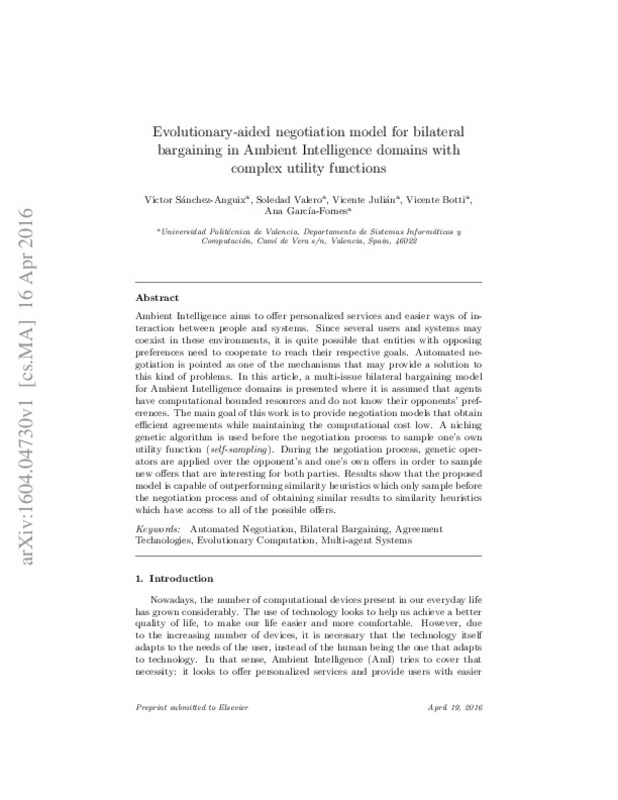JavaScript is disabled for your browser. Some features of this site may not work without it.
Buscar en RiuNet
Listar
Mi cuenta
Estadísticas
Ayuda RiuNet
Admin. UPV
Evolutionary-aided negotiation model for bilateral bargaining in Ambient Intelligence domains with complex utility functions
Mostrar el registro completo del ítem
Sanchez-Anguix, V.; Valero Cubas, S.; Julian Inglada, VJ.; Botti Navarro, VJ.; García Fornes, AM. (2013). Evolutionary-aided negotiation model for bilateral bargaining in Ambient Intelligence domains with complex utility functions. Information Sciences. 222:25-46. https://doi.org/10.1016/j.ins.2010.11.018
Por favor, use este identificador para citar o enlazar este ítem: http://hdl.handle.net/10251/35735
Ficheros en el ítem
Metadatos del ítem
| Título: | Evolutionary-aided negotiation model for bilateral bargaining in Ambient Intelligence domains with complex utility functions | |
| Autor: | ||
| Entidad UPV: |
|
|
| Fecha difusión: |
|
|
| Resumen: |
Ambient Intelligence aims to offer personalized services and easier ways of interaction between people and systems. Since several users and systems may coexist in these environments, it is quite possible that entities with ...[+]
|
|
| Palabras clave: |
|
|
| Derechos de uso: | Reconocimiento - No comercial - Sin obra derivada (by-nc-nd) | |
| Fuente: |
|
|
| DOI: |
|
|
| Editorial: |
|
|
| Versión del editor: | http://dx.doi.org/10.1016/j.ins.2010.11.018 | |
| Código del Proyecto: |
|
|
| Agradecimientos: |
|
|
| Tipo: |
|






![[Cerrado]](/themes/UPV/images/candado.png)



